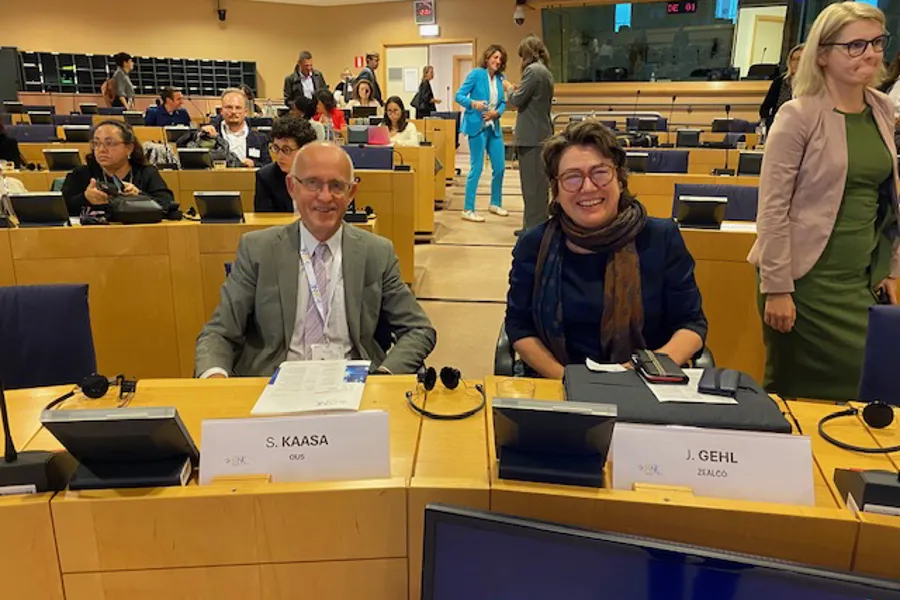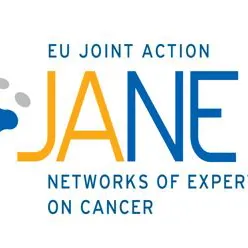Health networks, such as the Joint Action project on Networks of Expertise (JANE), may be defined as networks involving regular collaboration at a distance among healthcare professionals. These networks focus on items pertaining to the mission of the network.
The two-year JANE project, initiated in October 2022 as part of the EU4Health Program and endorsed by the EU Commission, aligns with the EU’s Beating Cancer Plan to improve the diagnosis and treatment of cancer patients across Europe. JANE was coordinated by Fondazione Istituto Nazionale dei Tumori (FINT) in Milan, supported by 36 partners from 15 EU member states and one associated country. Several work packages (WP) and transversal task forces were established, with OUS and Stein Kaasa leading WP6 on palliative care (PC).
The mission of JANE was to perform the preparatory activities needed to establish sustainable Networks of Excellence (NoE) on cancer to tackle the increasing cancer incidence and the higher demands for care, in a steadily ageing European population. The final stakeholder meeting was held in Brussels 24th-25th September 2024, also including a presentation at the European Parliament.”

The call for a four-year extension of JANE was launched in 2023. The application proved successful, with the official start, November 1, 2024. JANE2 project focuses on sustainability, coordination between NoEs, information-technology infrastructure (including AI), and patient involvement. JANE2 and has 7 clinically oriented WPs and 3 that concern more ad ministrative and overarching themes, e.g. sustainability, evaluation, and dissemination.
In JANE2, Oslo University Hospital (OUS) with Stein Kaasa as the lead, Marianne J. Hjermstad as Task Lead and Line Foss as coordinator will continue its leadership of the PC NoE together with Augusto Caraceni from Fondazione Istituto Nazionale Tumori Milano (INT), Italy. This WP now includes 28 European countries and appr. 40 institutions. The main activities, conceptualized as Tasks will focus on integrating PC and oncology, including defining, understanding, and adapting the PC content to align its implementation with the diverse cultures, care levels and organizations (Task 1, led by Denmark), development, testing and implementation digital symptom assessment and management (Task 2, led by OUS), education, competence and research (Task 3, led by Estonia), and Task 4, defining and harmonize indicators of PC implementation (led by Portugal). As PC is of high importance to several tumour groups, we are also participating in JANE’s WP5 on Poor Prognosis (Olav Dajani) and WP7 on Survivorship care (Cecilie Kiserud), as well as in WP2 Dissemination, WP3 Evaluation and WP4 Sustainability. Other OUS employees are engaged in WP7, WP8, and WP9, given their expertise in different aspects of Governance, as well as in WP10 Omics.
Given the large transfer value between WP6 and EUnetCCC (formerly CRANE and led by OUS), forces were joined during the application process, and will be continued throughout the lifetime of both projects. External collaborations in place with ERNs (European Reference Networks), EAPC and ESMO, to be supplemented by professional organisations (ECO, EONS and MASCC etc.), as well as patient and lay associations.
The organisation of JANE2 envisages a Network-in-Network structure, meaning that national, regional, and local network will be the means to disseminate and implement the Task results, i.e., pathways, guidelines, and recommendations to improve PC quality and increase access to the basic PC principles according needs. Aligned with this, Oslo University Hospital (OUS) has also initiated a national PC/JANE network in Norway, (November this year), formally through the four Regional Advisory Units for palliative, to reinforce the Network-in-Network structure as part of JANE2 and promote PC integration in direct clinical care. These efforts are well aligned with the work in WP3 (patient-centred care) and WP5 (health care implementation) of Matrix, in which Stein Kaasa is a co-lead, and Marianne J. Hjermstad leads WP6. As the JANE2 budget has not been officially endorsed, we have so far announced two post-doctoral positions
OUS JANE WP6 team: Stein Kaasa, Line Foss, Marianne J. Hjermstad
Shaping the EU Networks of Expertise on cancer.

